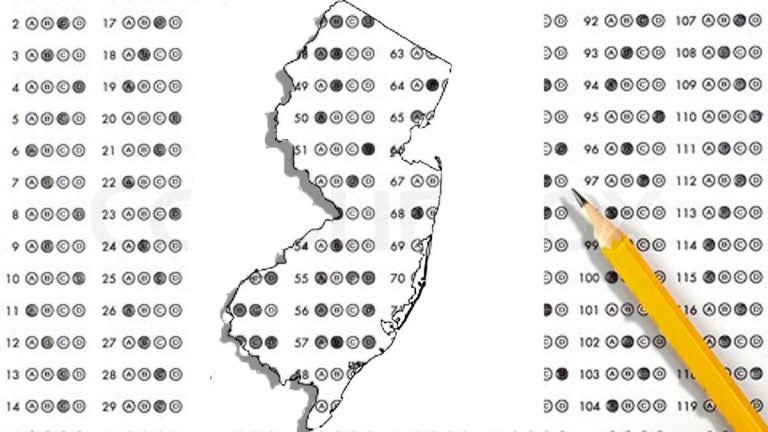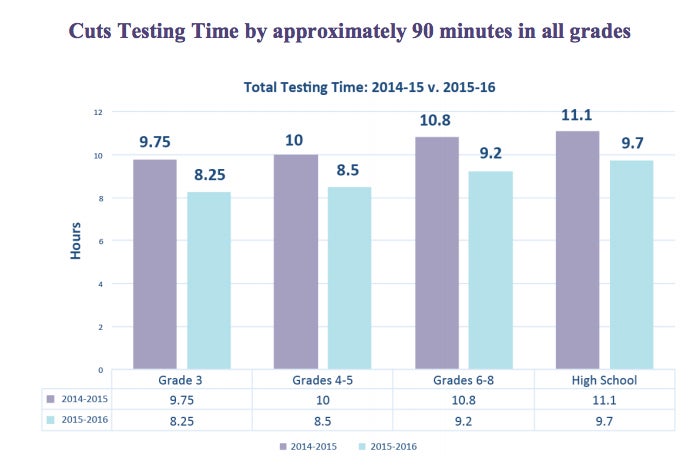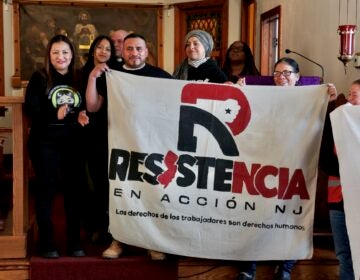Commentary: PARCC shortens tests, but even that won’t satisfy critics

The Partnership for Assessment of Readiness for College and Careers (PARCC), the consortium that provides student assessments for New Jersey and ten other states, just voted to cut back the length of the new annual standardized tests that are aligned with the Common Core State Standards. Next year’s PARCC tests will take 90 minutes less than this year’s version. Also, this year’s two testing periods, one in March and one in May, will be combined into one testing period.

Is everybody happy?
Of course not. While student-centered groups applauded the changes, lobbyists associated with the anti-testing coalition continue to deride the tests. This reaction reveals much about the politics of the anti-testing coalition that tries to persuade parents to opt their children out of testing and confirms that its primary purpose is to protect adults, not children.
First, two student-centered responses:
New Jersey School Boards Association Executive Director Larry Feinsod: ““We appreciate the PARCC consortium’s sensitivity and responsiveness to the issue of test administration time. New Jersey has made refinements to previous statewide testing programs after their initial administration. We anticipated similar action following this year’s first administration of PARCC, and we welcome the changes.”
Patricia Wright, executive director of the New Jersey Principals and Supervisors Association: “Having the administration [of the test] all at once, changing that is very important. That will make a big difference.”
Now, two adult-centered responses:
NJEA President Wendell Steinhauer: “To put an onerous PARCC test with computers and everything into it and taking away from the time for children for academics, is just, I don’t want to say cruelty, but it is cruel.”
Save Our Schools-NJ: “No district should use the PARCC results in consequential ways [i.e., for teacher evaluations] until it is validated, just as we would not want a medical test to be used without first proving it is accurate and unbiased.” And, “this is why we will continue to fight against high-stakes standardized testing!”
New Jersey’s suburban PARCC backlash, what’s often called the “opt-out movement,” was never about children’s stress levels or classroom balances between instruction and assessment. It wasn’t even about costs of PARCC testing, which turn out to be $3 per student cheaper than our old ASK and HSPA tests, or district bandwidth, which, in most cases was more than adequate, or the length of the new tests, which will now be 90 minutes longer than the old tests. Our local anti-PARCC thrust has always been targeted at N.J.’s 2012 teacher tenure law, TEACHNJ, which encoded a fundamental shift in how school administrators evaluate teachers.
Previously, N.J. teacher evaluations were based on subjective classroom observations. Now, post-TEACHNJ, 10% of teacher evaluations (the percentage could go as 30%, depending on the wont of legislators and the D.O.E.) are linked to student outcomes on standardized tests. This change is reflected across the country; currently, 41 states require that test data be incorporated into teacher evaluations. The National Council on Teacher Quality (NCTQ) calls this “a seismic shift rarely seen in education policy in general or state teacher policy specifically.”
Any big institutional change is stressful, and there are legitimate concerns about whether we overtest children or how we can best measure teacher effectiveness. But the backlash isn’t about fine-tuning assessments or eliminating redundant tests. It’s about reversing teacher effectiveness policies that, as NCTQ says, have been formulated for “the good of the profession and students alike.”
So the PARCC backlash is about grown-ups, not children. Not that there’s anything wrong with that. The job of union leaders is to protect their members. As the brilliant (and honest) union icon Albert Shanker once said, “when school children start paying union dues, that’s when I’ll start representing the interests of school children.”
____________________________________________________
Laura Waters is vice president of the Lawrence Township School Board in Mercer County. She also writes about New Jersey’s public education on her blog NJ Left Behind. Follow her on Twitter @NJLeftbehind.
WHYY is your source for fact-based, in-depth journalism and information. As a nonprofit organization, we rely on financial support from readers like you. Please give today.





